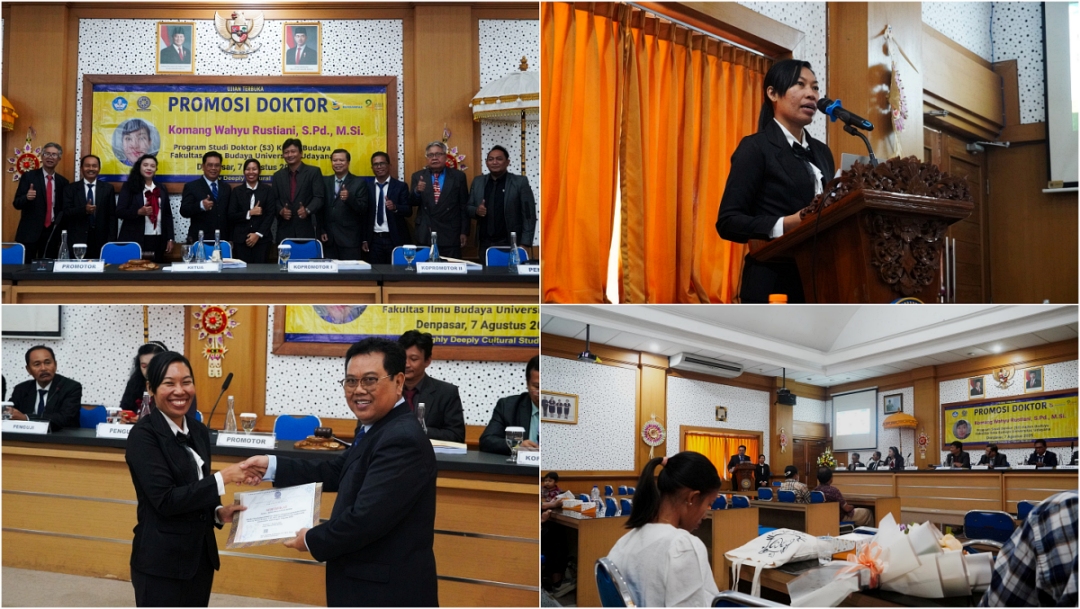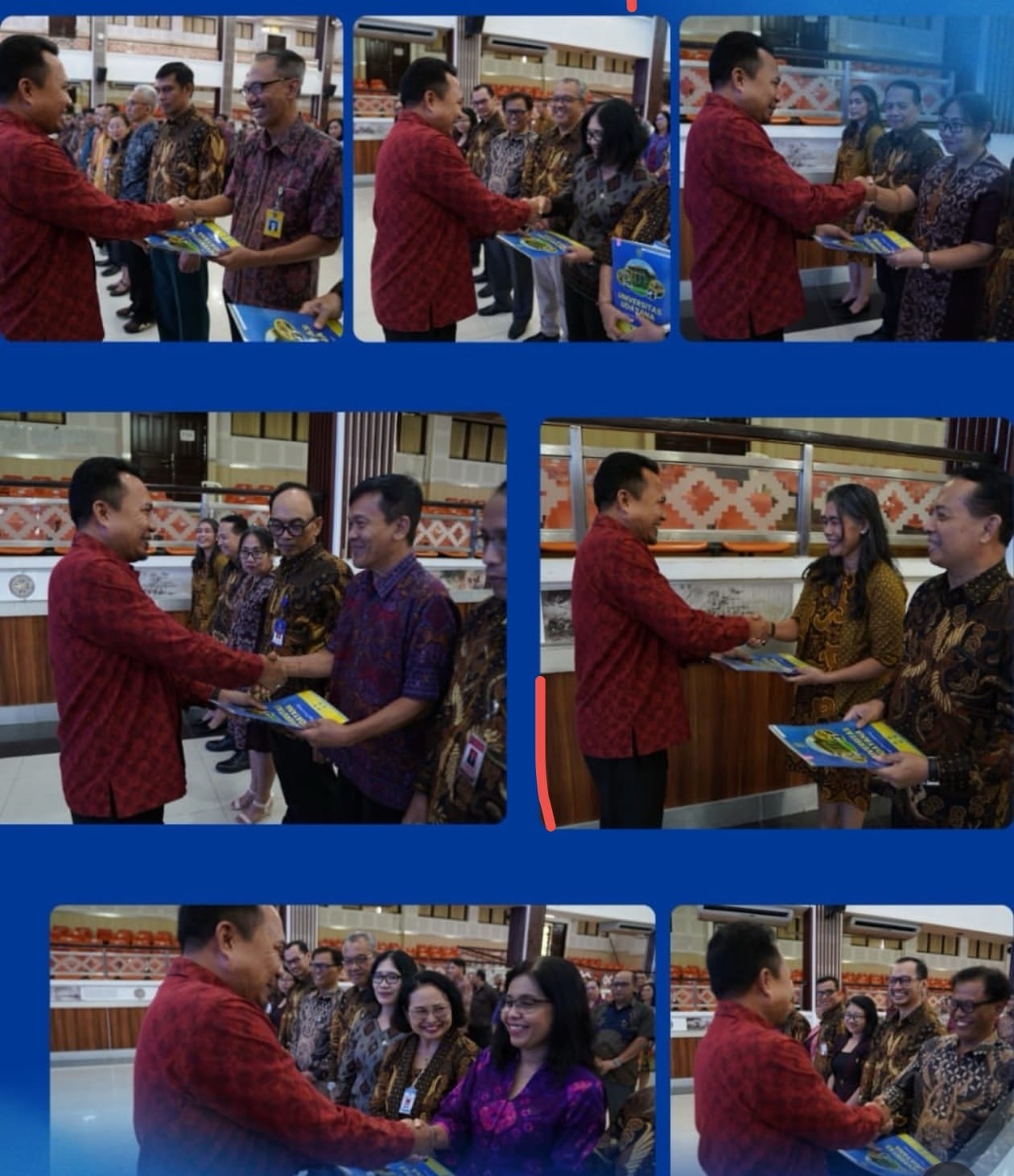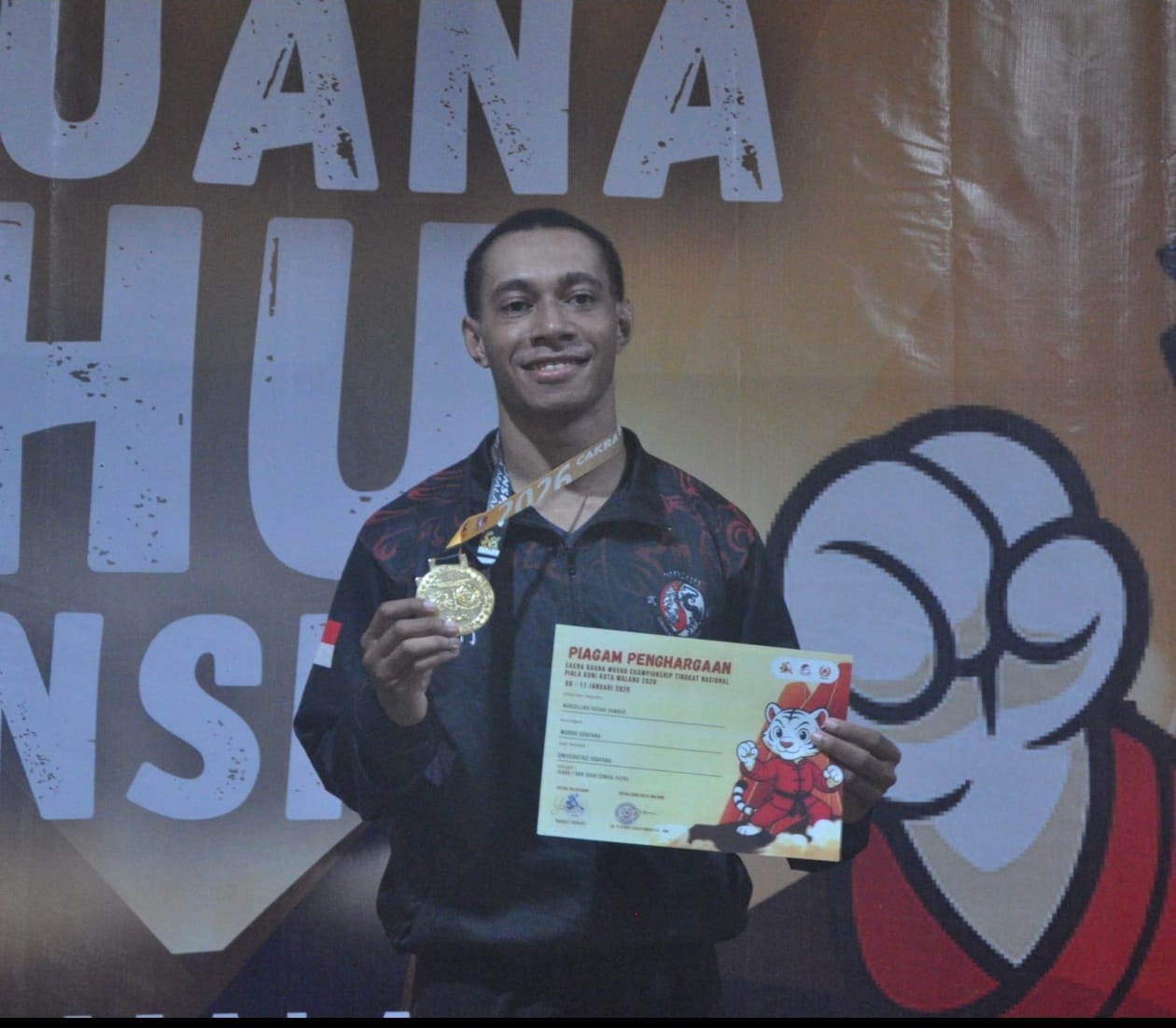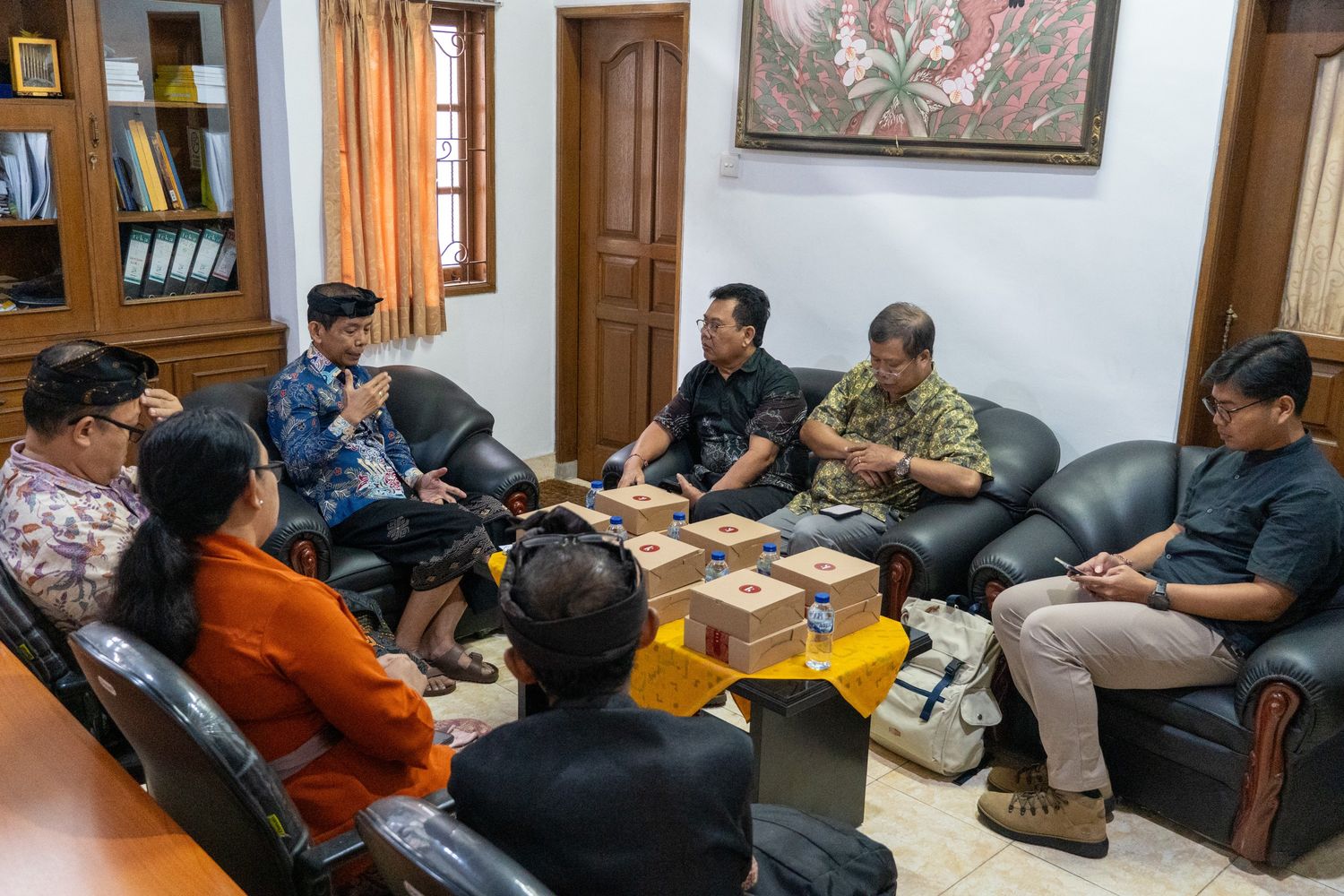Halu Oleo University Lecturer Earns Doctorate Degree in Cultural Studies Doctoral Program, Faculty of Humanities, Udayana University
On Thursday, August 7, 2025, the Doctoral Program in Cultural Studies, Faculty of Humanities (FIB) Udayana University (Unud) held an Dissertation Defense in the Ir. Soekarno Room, FIB Unud Nias Campus, Denpasar. Promovenda named, Komang Wahyu Rustiani S.Pd.B., M.Sc., presented a dissertation entitled "Deconstruction of the Kembar Buncing Custom in Bali Aga Buleleng Villages". She successfully defended her dissertation and was declared to have graduated with a Cumulative Grade Point Average (GPA) of 3.84 with the title "With Honors." With this achievement, promovenda is recorded as the 263rd Doctorate in the Faculty of Humanities, Unud, as well as the 298th Doctorate in the Doctoral Study Program (S3) in Cultural Studies FIB Unud.
This dissertation defense was chaired by the chairman of the session, Dr. Nanang Sutrisno, S.Ag., M.Sc., who was accompanied by the Promoter, Prof. Dr. I Nyoman Suarka, S.S., M.Hum., Co-promoter I, Prof. Dr. I Nyoman Darma Putra, M.Litt., Co-promoter II, Dr. Rahmat Sewa Suraya, S.Sos., M.Sc. from Halo Oleo University, and the Examiner Team consisting of Dr. Komang Adi Sastra Wijaya, S.S., MAP; Dr. I Wayan Suardiana, M.Hum.; Dr. Ida Bagus Gde Putra, M.Hum.; as well as external examiners including Dr. Drs. I Wayan Sumertha, M.Ag. who is a Lecturer at the State Institute of Hindu Religion (IAHN) Gde Pudja Mataram, and also a Lecturer at the State Hindu University (UHN) I Gusti Bagus Sugriwa, Dr. Pande Wayan Renawati, SH, M.Sc., C.Ed.
This dissertation examines the deconstruction of the fraternal twin (kembar buncing) custom practiced by Bali Aga villages from the 1960s to 2024. The birth of kembar buncing is often accompanied by negative stigmas such as being considered a bringer of bad luck, disaster, or even the cause of village destruction, which causes individuals who experience it to be subject to discriminatory customary sanctions. Despite undergoing a number of social transformations, the practice of ostracizing twins has continued for the past two decades. This issue is the focus of this research, namely the form, process, and impact of deconstruction on customs that are considered no longer relevant to human values and modern developments.
This dissertation finds that the deconstruction of the kembar buncing custom in Bali Aga villages in Buleleng was triggered by changes in community habitus, rationalization processes, cultural arena struggles, and the existence of binary opposition within the customary structure. The deconstruction process occurs systematically through the emergence of negative stereotypes, misconceptions about customary regulations, social disintegration, shifts in social and cultural space (displacement), deterritorialization, and the emergence of resistance against the hegemony of tradition by modern society. The impacts of this deconstruction include increased social and economic welfare, growing individual awareness, and increased public literacy regarding religion and myths that were previously considered absolute.
The findings of this dissertation constitute an important contribution to the critical study of oral traditions and customary practices in local communities. As Promovenda stated, several communities in Bali Aga villages were surprised by his choice of research topic. This is because academic studies conducted in the region have generally focused on the tradition of pengabenan, which is indeed unique in its practice. Meanwhile, the topic of kembar buncing (fraternal twin) remains rarely addressed and is considered a sensitive issue with little widespread understanding. Promovenda recognizes that this step will carry its own moral burden, but she remains steadfast in his commitment to exploring, compiling, and presenting the results of this research in a book written in simple, accessible language.
At the end of the dissertation defense, Promoter Prof. Dr. I Nyoman Suarka, S.S., M.Hum., in his remarks expressed his appreciation for the success of promovenda in defending his dissertation and the important contribution of the research to the development of cultural studies, especially in the context of the local wisdom of the Bali Aga community. "This dissertation provides a new understanding of customs as a dynamic social construction, which follows the laws of nature and experiences changes over time. It is hoped that this effort can help the community understand the complexity of customs more critically and become an inspiration for villages in Bali Aga, Buleleng," said Prof. Suarka. He looked forward to the continued contribution of promovenda as a doctor and advised that the doctoral degree that has been achieved be maintained and honored as a form of intellectual responsibility.




UDAYANA UNIVERSITY